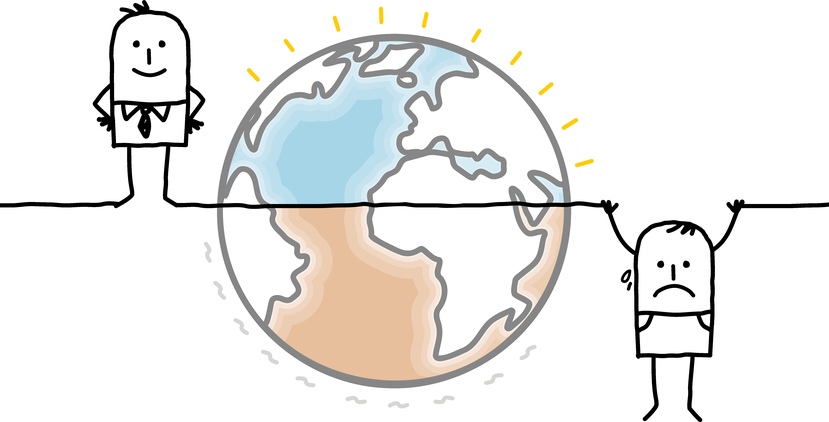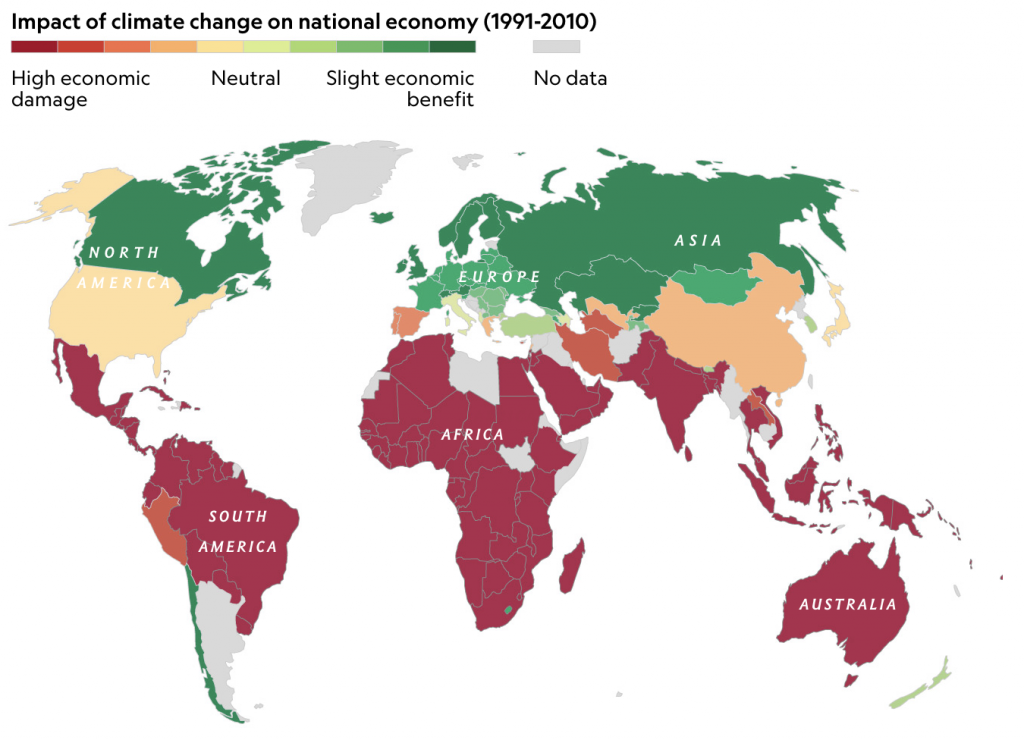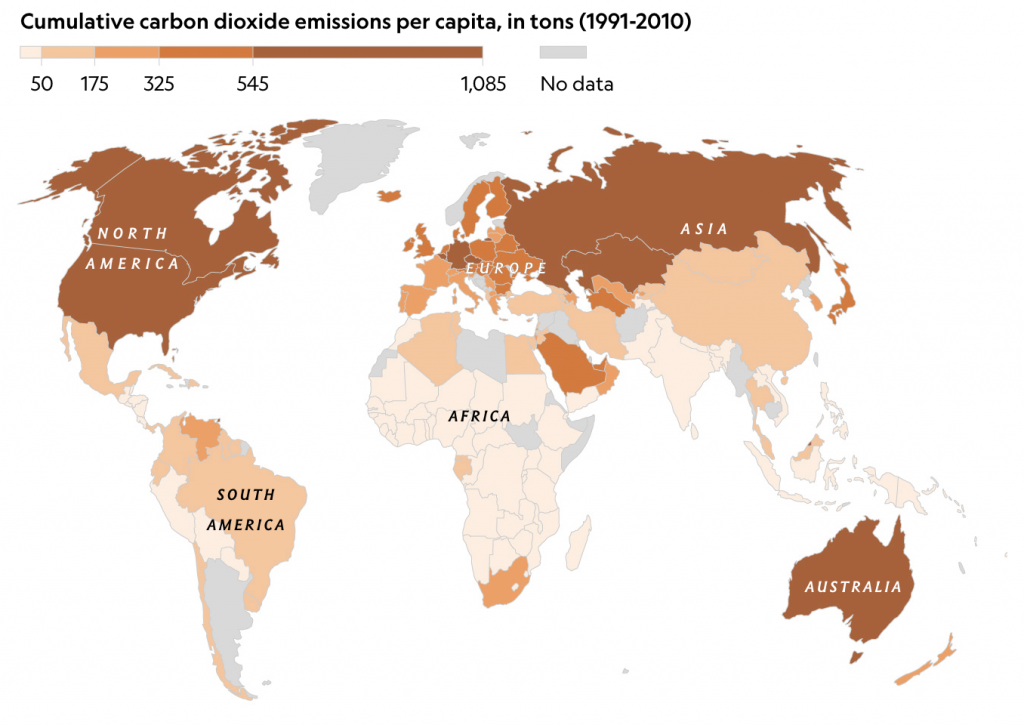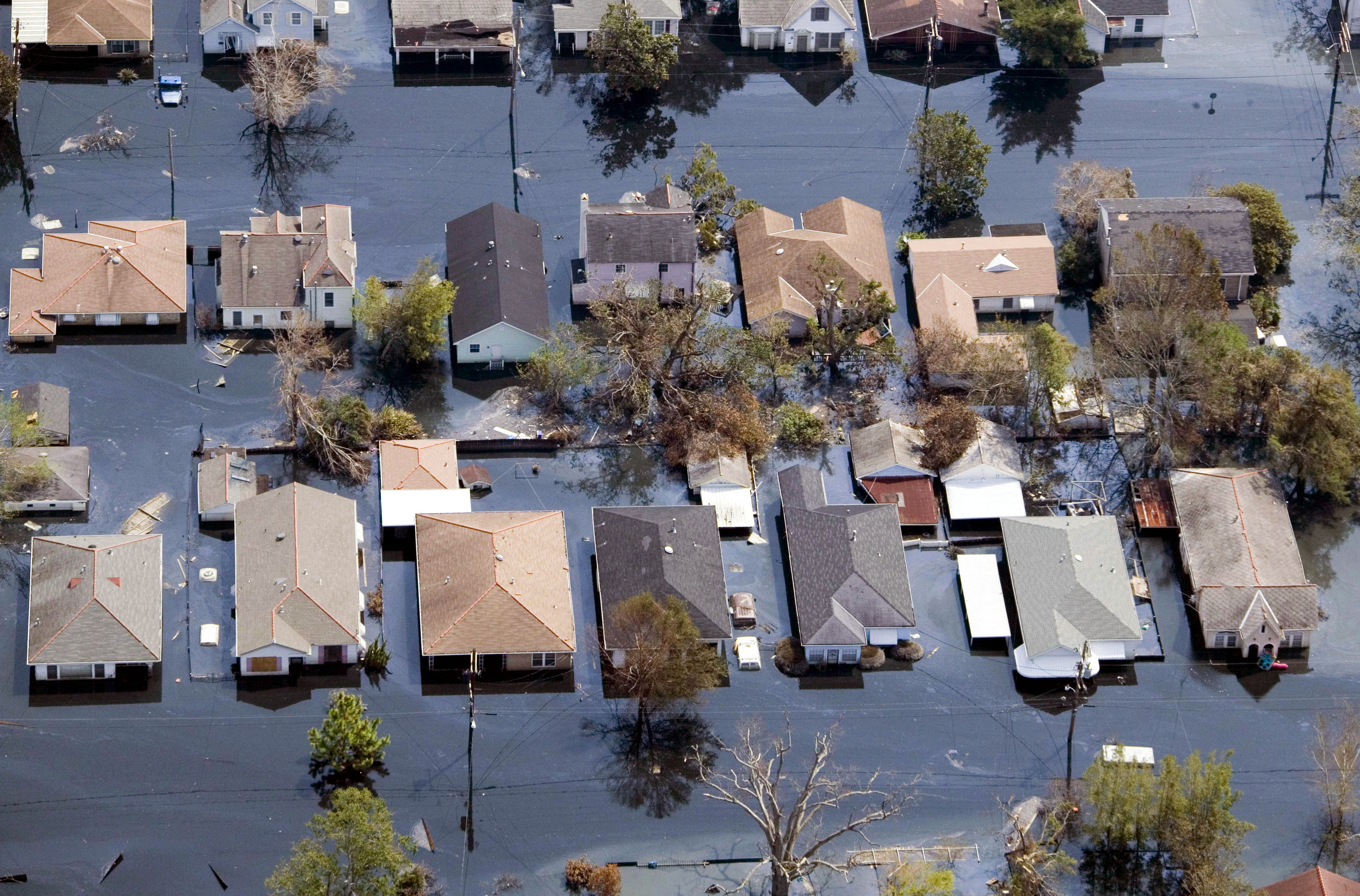Wildfires in Australia, cyclones in South Africa, droughts in East Africa, floods in South Asia, hurricanes in the United States. This is just the tip of the iceberg; natural disasters are running rampant across the globe and many countries are being beaten down because they lack economies that can keep up. As climate change and its impacts continue to grow, so will the physical and economic damage.

Our society has a tendency to view climate change as a problem that isn’t as much disrupting human life as it is the lives of the polar bears and the sea turtles. The fact is, according to 2016 data, over 60,000 PEOPLE die from natural disasters per year.
The communities bearing the MOST consequences are contributing the LEAST to global temperature rise and emissions…

Climate change isn’t solely an ENVIRONMENTAL issue, it is an ETHICAL and POLITICAL issue as well.
WE MUST ADDRESS CLIMATE JUSTICE.
Economic inequality is not a new issue, but climate change is hindering any improvements; the gap between the richest and poorest countries is 25% WIDER than it would be without climate change. Why? Poorer countries face longer economic recovery times when disaster strikes, while wealthy countries see economic boosts from increased economic output in warmer temperatures.
According to a study by National Geographic:
- Of the 19 countries with the highest total CO2 emissions, 14 experienced an economic bump from warming.
- The 18 countries with the lowest CO2 emissions per person took economic hits of over 25%.


In the United States, the distribution of damages related to natural disasters is disproportionate, with many low-income communities unable to recover entirely.
- In 2015, 10 years after Hurricane Katrina, thousands of residents in New Orleans faced permanent displacement. Public housing apartments for low-income people dropped from 5,000 before the storm to 1,925 apartments after.
- Three years after Hurricane Sandy, 39,000 displaced people still needed housing assistance and lacked a permanent home.

I live in a traditional, middle-class household. When Hurricane Sandy hit, we lost power for 14 days; we spent 4 days in a hotel when it got too cold to stay in the house… Many other families don’t have these same opportunities to escape when disaster strikes.
Globally, the socioeconomic divide and its correlation to climate change-related damage is even more austere.
According to the International Institute for Sustainable Development:
- 821 million people are undernourished globally as of 2018.
- 70 million people have been displaced.
- The number of people lacking sufficient water could increase from 3.6 billion to 5 billion by 2050.
- Over 100 million people in developing countries may be pushed below the poverty line by 2030.

There isn’t a “best way” to approach climate justice.
Climate change is neither straightforward nor equitable. Policy and regulations have been set in various countries, but it is hard to predict how they will play out; many are manipulated to provide little aid to at-risk populations. Despite this, one thing is for certain: We can no longer ignore the voices of vulnerable communities while developed countries reap the economic benefits of climate change.
We need to provide a platform for these groups to express their concerns and find ways to incorporate these voices in creating NEW, EQUITABLE POLICY.
Sources:
- National Geographic: Inequality is decreasing between countries—but climate change is slowing progress
- Oxfam International: 5 natural disasters that beg for climate action
- IISD: Climate Change Hits Vulnerable Communities First and Hardest
- The Atlantic: A Long Road Home
- Amnesty International: 10 Years After Katrina